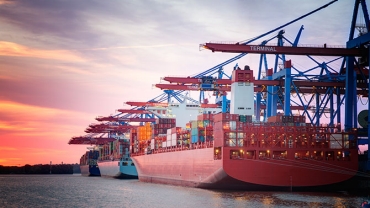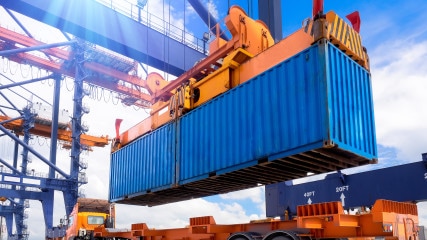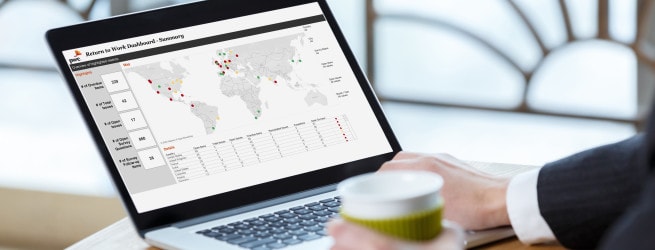
Maritime transport reportedly emits around 940 million tonnes of CO2 annually and is responsible for about 2.5% of global greenhouse gas (GHG) emissions (3rd IMO GHG study), with a projection to increase significantly over the next few years (estimated increase rate amounts to 50%-250% by 2050), unless remediation measures are enforced. To this direction, the EU has formulated a concrete strategy, driven by the global approach adopted by the International Maritime Organisation (IMO), focusing heavily on monitoring, reporting and verification of CO2 emissions from large vessels (over 5 000 gross tonnage) using EU ports.
The starting point of this conversation includes the establishment of a cutting-edge, integrated reporting solution, incorporating the latest technological advances, that can offer the ability to collect, process and analyse vessels’ operational data through tailor-made Key Performance Indicators (KPIs), aiming to provide insights on performance, technical operations and maintenance.
To prove compliance and align with the established guidelines, shipping companies shall:

- Monitor and report under both the EU Monitoring, Reporting and Validating (MRV) Regulation and the IMO Data Collection System multiple parameters for each of their ships, including indicatively but not exhaustively, CO2 emissions, fuel consumption, distance travelled and time at sea on a per voyage basis;
- Formulate an annual, satisfactory verified emissions’ report for each ship and submit it to the Commission and the States;
- Ensure all ships carry onboard official verified documents (EU MRV) and statements of compliance (IMO DCS) by authorized organizations.
Introducing a comprehensive reporting solution that may enable shipping enterprises to efficiently monitor CO2 emissions and other key performance metrics, while taking a proactive stance towards long-term GHG reductions, should be placed at the top of the management agendas
In their effort to conform to the new reality and achieve high sustainability levels, shipping companies have been faced with critical performance monitoring and reporting challenges, mainly due to the use of legacy systems and outdated maritime software suites that often prove to be unstable and incompatible with new technologies and regulatory requirements. Additionally, manual data retrieval and processing by users increase the possibility of human error throughout the reporting process.
As such, the introduction of a comprehensive reporting solution that may enable shipping enterprises to efficiently monitor CO2 emissions and other key performance metrics, while taking a proactive stance towards long-term GHG reductions, should be placed at the top of the management agenda.
This is also highly connected to the monitoring of each shipping enterprise sustainability or Environment, Social and Governance (ESG) performance and how it impacts the decisions of investors in the capital market as well as the ability of shipping companies to assess financing.

Powerful new technologies and advanced analytical tools can play a critical role in underpinning the solutions needed to tackle the most pressing challenges amongst shipping companies – from CO2 emissions' and ESG performance monitoring and enforcement for conservation, to uncovering useful, data-led insight in an effort to decarbonize energy and transport.
The starting point of this conversation includes the establishment of a cutting-edge, integrated reporting solution, incorporating the latest technological advances, that can offer the ability to collect, process and analyse vessels’ operational data through tailor-made Key Performance Indicators (KPIs), aiming to provide insights on performance, technical operations and maintenance.
In particular, an integrated solution should encapsulate key capabilities such as:
We have identified the imminent needs of our clients operating in the Shipping Industry throughout our dialogue on the holistic picture of sustainability ESG management and performance monitoring. Within this context, we have developed a centralised, cloud-based management intelligent reporting solution, enabling access from everywhere, that offers a simplistic, secure and scalable way to automate the production of regulatory and operational performance dashboard reports via a user-friendly and easily maintainable business intelligence (BI) environment. A dashboard based platform fully integrated with a Big data Intelligent Forecasting Platform (IFP) capable of producing time series forecasts deploying a range of simple and ML algorithms.

A wide range of shipping companies may harness the benefits deriving from a novel revolutionised ESG management and regulatory reporting process, allowing for direct access to interactive dashboards, through the use of cloud based Business Intelligence (BI) platform. Users, ranging from C-level executives to business and technical experts, having diverse access rights, can not only obtain valuable insights and forecasts regarding vessels’ performance and consumption metrics, but also a broad understanding of the competitive environment in which shipping companies operate and embrace strategic, data-led decision-making.
Contact us









